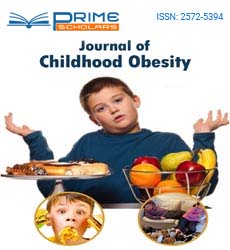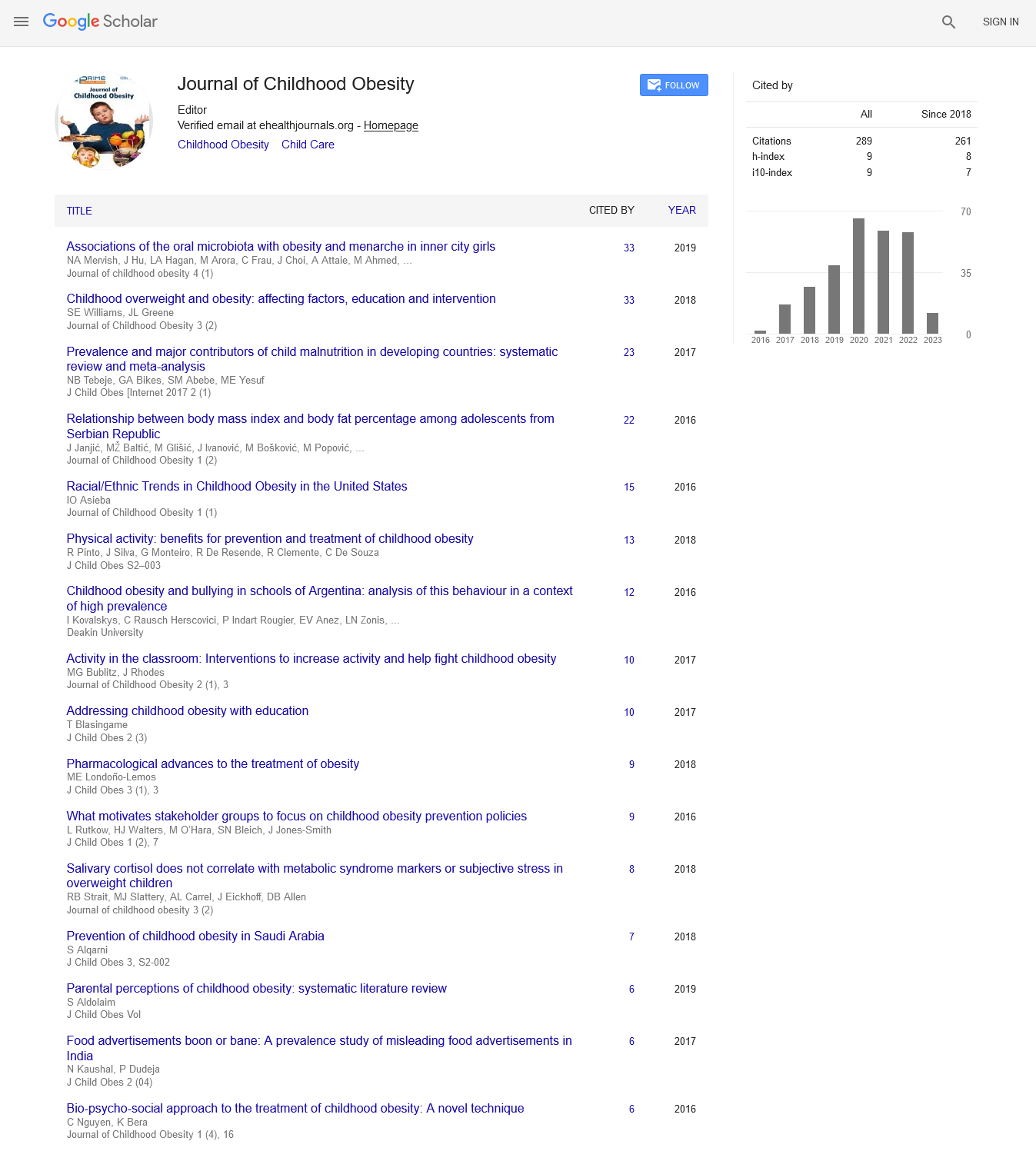Baratan P*
Department of Neurosciences and Mental Health, china
- Corresponding Author:
- Baratan P
Department of Neurosciences and Mental Health, china
E-mail: baratan_p@med.cn
Received Date: January 08, 2021; Accepted Date: January 17, 2021; Published Date: January 24, 2021
Citation: Baratan P. Obesity and microbiome: short note of potential role. J Child Obes 2021;6:1. doi: 10.21767/2572-5394.6.1.34
Copyright: © 2021 Baratan P. This is an open-access article distributed under the terms of the Creative Commons Attribution License, which permits unrestricted use, distribution, and reproduction in any medium, provided the original author and source are credited.
The potential role of intestinal microbiota in the etiology of various human diseases has attracted massive attention in the last decade. As such, the intestinal microbiota has been advanced as an important contributor in the development of obesity and obesity-related metabolic dysfunctions, amongst others
Keywords
Child obesity, obesity, insulin resistance
Short note of potential role
The rising prevalence of childhood obesity poses a significant public health challenge by increasing the burden of chronic non-communicable diseases. Obesity increases the risk of developing early puberty in children, menstrual irregularities in adolescent girls, sleep disorders such as obstructive sleep apnea (OSA), cardiovascular risk factors that include Prediabetes, Type 2 Diabetes, High Cholesterol levels, Hypertension, NAFLD, and Metabolic syndrome. Additionally, obese children and adolescents can suffer from psychological issues such as depression, anxiety, poor self-esteem, body image and peer relationships, and eating disorder. So far, interventions for overweight/obesity prevention have mainly focused on behavioral changes in an individual such as increasing daily physical exercise or improving quality of diet with restricting excess calorie intake. Products of intestinal microbes such as butyrate may induce beneficial metabolic effects through enhancement of mitochondrial activity, prevention of metabolic endotoxemia, and activation of intestinal gluconeogenesis via different routes of gene expression and hormone regulation. Future research should focus on whether bacterial products (like butyrate) have the same effects as the intestinal bacteria that produce it, in order to ultimately pave the way for more successful interventions for obesity and T2DM. The rapid development of the currently available techniques, including use of fecal transplantations, has already shown promising results, so there is hope for novel therapies based on the microbiota in the future.

